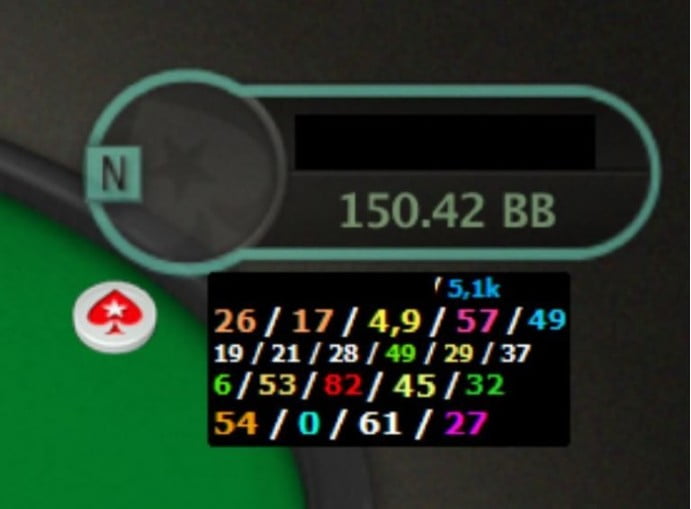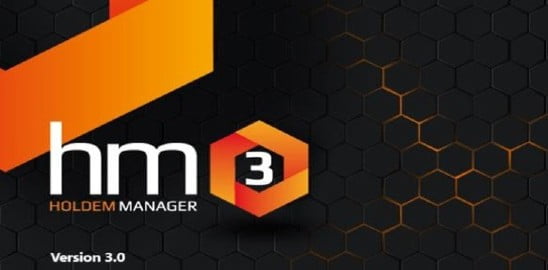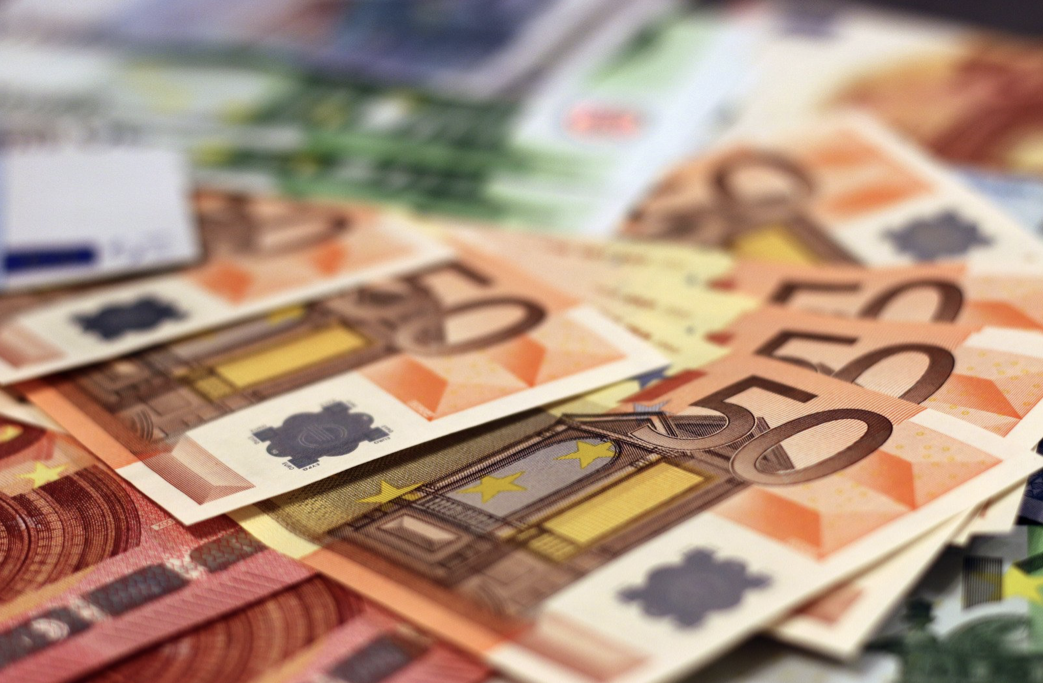On Tracking software
Hey guys, Beasts of Poker asked me to write a bit about How to use trackers so here we go!
The graph you see above is possible because of my knowledge on trackers, what to use them for and ultimately: how to use them in your game. As this is such a huge topic and designed for players who are just wondering if they should buy a tracker, I’ll write from the basics here and might publish other articles later on more specific topics.
Why use trackers?
As a poker professional I always aim to maximize my hourly profit. Trackers gives the possibility to get a huge amount of information with a single look of your HUD (Heads Up Display). HUD is the small box next to players name, that you may have seen in some photos.

With enough data (hands) your HUD will give you significant edge compared to someone who’s not using HUD. However, the most value you get from your HUD is when you’re multitabling. This is because when you have tons of tables open you have no time to see every single detail of one specific table. Let’s say you’re playing six cash game tables at the same time and in one of them you have a decent hand on the button but cut off has opened. Now you know this specific hand can be played with either a call or fold depending on the opener, but you’ve been too busy to know anything about the cutoff. What to do? You check your HUD – see what kind of player you’re playing against and with the data from your HUD make the right decision. That’s it. You just gained an extra EV by having a tracker. Even if you play only one table at the time it might be hard to give a solid estimate how often opponents are playing against you (three-betting, raising to your blinds and so on) as these judgements are easily manipulated by your feelings. It’s easy to “feel” that someone is playing a lot of hands against you – even if they’re not. This is one of the reasons why poker is such a complex game and any extra data should be taken in with open arms.
Where to start?
Start slow. It’s more important that you really understand what the stats actually mean than unnecessarily flooding your screen with huge amounts of numbers. My suggestion would be to start with just three stats: VPIP, RFI and 3-bet.
VPIP comes from “voluntarily put money in the pot” and it tells how many % of the hands any given player in your table is playing. You can easily see if someone is playing too many hands by just having a quick look on their VPIP%.
RFI (Raise first) is extremely usable stat but you probably want to have it as a different column in your HUD altogether, as it will work better if you can see your opponent’s RFI from every position. Why, you ask? Because if you use RFI total it will give you the average of all positions – and players who play 10-25-45-75-25 and 35-35-35-35-35 will have vastly different ranges in certain situations and most likely a whole different level of poker understanding – but have the same number “35” on your HUD.
3-bet %. Tells you how likely an opponent is going to raise a bet preflop. This stat is going to help you with tightening or loosening your opening range from any position.
As you can see, I started with only a preflop stats – that’s because they’re the easiest to fix and will give you a certain boost to your winnings from the tables! Also, diving deeper into proper tracker use will come to you more naturally once you get a handle on these basic stats.
Afterwords
Even if the thought of HUD and any extra numbers on your screen is making you a bit nauseous, I’d strongly advocate buying a tracking software. Ultimately it will help you track your results (hence the name “tracking software”) and automatically saves your hands which helps to evaluate your game after each session. It may also help you during downswings to have a “proof” that you really are just running bad or maybe calm you a bit when you’re running hotter than the sun. In a game of incomplete information – making the most of the information that we do have – is what ultimately defines the winners.
Author

Henri Koivisto
Henri is a Pot-Limit Omaha specialist and an expert in all aspects of poker tracking software. Henri has played poker professionally since 2009 and regularly plays the highest cash games available online. He is a two-time title winner in World Championships of Online Poker.








